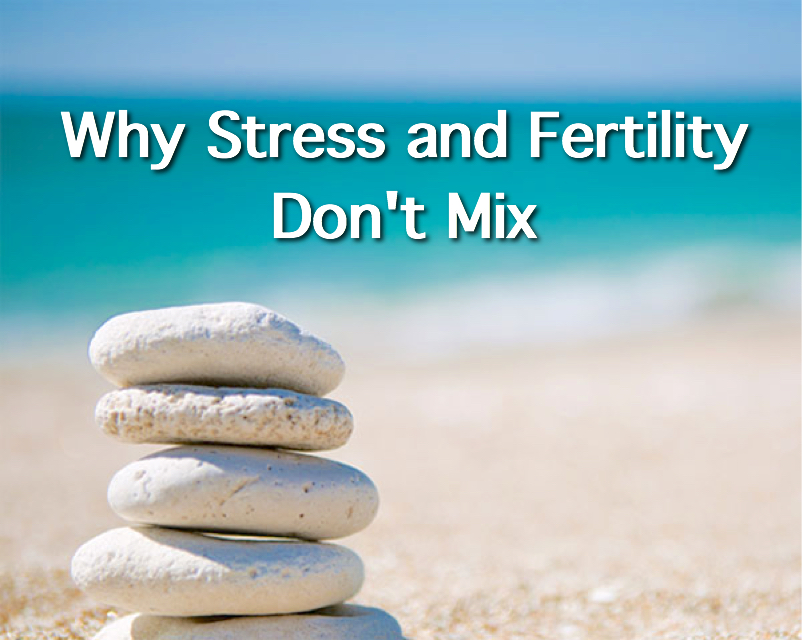Why Stress & Fertility Don’t Mix

Relax, you’re trying too hard, just let it happen.
All too common messages from family and friends intended to provide calm and comfort during your fertility journey although more often than not, it’s these same phrases that increase stress levels, which is an absolute no-no when trying to conceive.
Studies now show that stress may actually play a role in up to 30% of all infertility problems.
Even though there is not yet enough available data to draw a clear and obvious link between stress and infertility, many doctors believe it’s only a matter of time before they’re able to connect all the dots and see the bigger picture.
It’s safe to say we all experience some level of stress in our everyday lives. What isn’t good is when we allow chronic stress to rule our lives, consume our thoughts, elevate our cortisol, and wreak havoc on our body’s mental and physical health.
Chronic stress is the worst kind of stress there is when it comes to fertility, because it’s constant.
More and more studies are beginning to focus on the physiological effects of stress and how it may play a role in conception, and for good reason.
Hormones such as cortisol and epinephrine, which rise and often times remain high during episodes of chronic stress, may play a key role in infertility.
“It’s possible that reducing stress may help enhance proteins within the uterine lining that are involved in implantation“, says Allen Morgan, MD, director of Shore Institute for Reproductive Medicine in Lakewood, N.J.
She goes on to say that stress reduction may increase blood flow to the uterus, which may also affect conception.
While doctors cannot yet pinpoint the exact affect stress has on fertility, they do know that when stress-reduction techniques such as yoga and meditation are employed, something happens in some women that allows them to get pregnant when they couldn’t get pregnant before.
Additional studies found that pregnancy was much more likely to occur during months when couples reported feeling “good“, “happy“, and “relaxed” as opposed to “stressed“, “tense“, or “anxious“.
And it’s not just with natural (unassisted) pregnancies either where stress can wreak havoc. Same is true for infertility treatments, including in vitro fertilization (IVF).
The stress alone from undergoing infertility treatments is enough to stop even the most successful procedures from working.
Stress can impact fertility differently in each one of us and while it may be a while before doctors figure out what the direct correlation between stress and infertility is, we can begin employing stress-reduction techniques immediately to decrease stress and ultimately, increase fertility.
If you haven’t already, find an outlet for your stress, whether it’s regular exercise, acupuncture, massage therapy, yoga, exercise, or mediation.
Experiment with one or several of these methods and go with the one that works best for you and schedule it into your daily or weekly routine.
Aside from the role stress reduction may play in being fertile, it also helps us to feel good, be more relaxed, and comfortable overall.
It’s during these times when we feel our best, both physically and mentally, that we’re our healthiest.
It’s a big win for our overall health and fertility.


